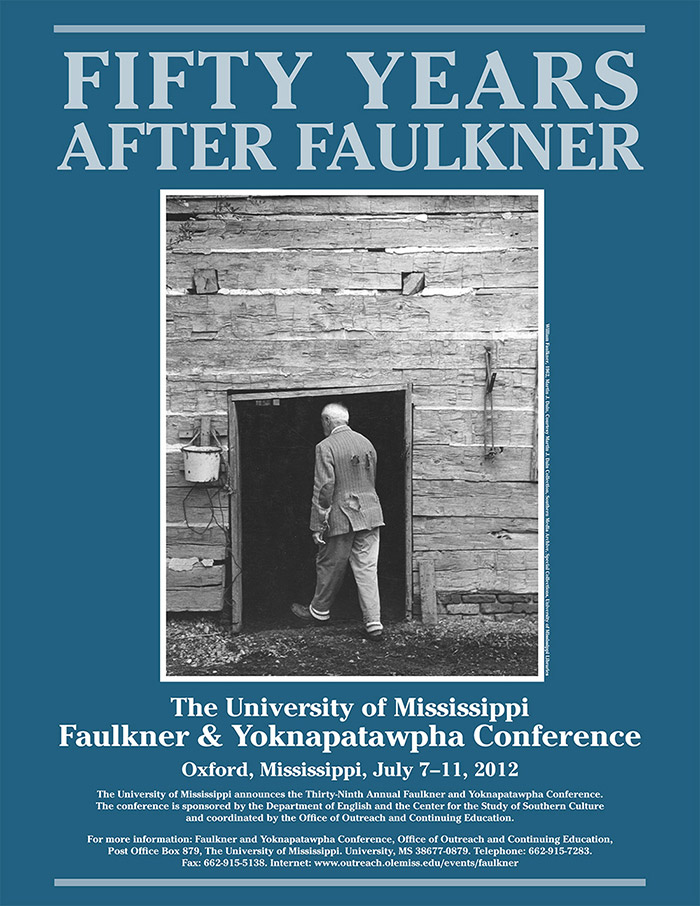
Ricky Bobby’s William Faulkner, Or, Talladega Nights as Cultural Critique
Location
Nutt Auditorium
Start Date
9-7-2012 2:00 PM
Description
At the close of the 2006 film, Talladega Nights, William Faulkner makes a surprising appearance. More specifically, as the credits roll, we enter a bedroom, where Faulkner's short story, "The Bear," is read and discussed with great seriousness by two children - the progeny of Ricky Bobby - under the watchful eye of their grandmother. The film is a lowbrow, farcical portrait of Southern folkways. The intimate conversation - a debate over competing literary interpretations, really - is, at first glance, a part of the farce, so random and so obscure that it begs for laughter. But there is more than a joke here, and more, too, than mere randomness. The coda signals the dead seriousness of a film that has, on the surface, no real reason to be viewed seriously. Guided by feminine virtue, and supplementing their love of KFC and NASCAR with a sober study of Faulkner, the once troubled children are redeemed. And so, too, it seems, is the South. What does it mean, I ask, to discover a restorative representation of Faulkner in such an unexpected place? Is Talladega Nights a Faulknerian text? And is Faulkner now a part of the national popular?
Relational Format
Conference proceeding
Recommended Citation
Guterl, Matthew Pratt, "Ricky Bobby’s William Faulkner, Or, Talladega Nights as Cultural Critique" (2012). Faulkner and Yoknapatawpha Conference. 22.
https://egrove.olemiss.edu/fy/2012/schedule/22
Ricky Bobby’s William Faulkner, Or, Talladega Nights as Cultural Critique
Nutt Auditorium
At the close of the 2006 film, Talladega Nights, William Faulkner makes a surprising appearance. More specifically, as the credits roll, we enter a bedroom, where Faulkner's short story, "The Bear," is read and discussed with great seriousness by two children - the progeny of Ricky Bobby - under the watchful eye of their grandmother. The film is a lowbrow, farcical portrait of Southern folkways. The intimate conversation - a debate over competing literary interpretations, really - is, at first glance, a part of the farce, so random and so obscure that it begs for laughter. But there is more than a joke here, and more, too, than mere randomness. The coda signals the dead seriousness of a film that has, on the surface, no real reason to be viewed seriously. Guided by feminine virtue, and supplementing their love of KFC and NASCAR with a sober study of Faulkner, the once troubled children are redeemed. And so, too, it seems, is the South. What does it mean, I ask, to discover a restorative representation of Faulkner in such an unexpected place? Is Talladega Nights a Faulknerian text? And is Faulkner now a part of the national popular?

